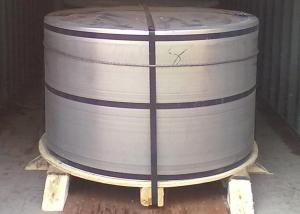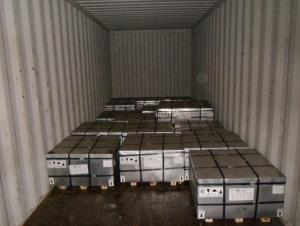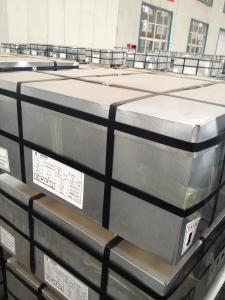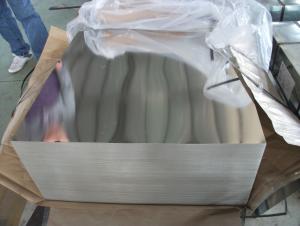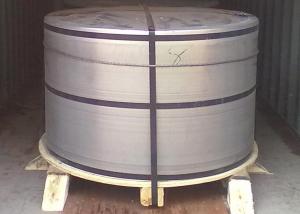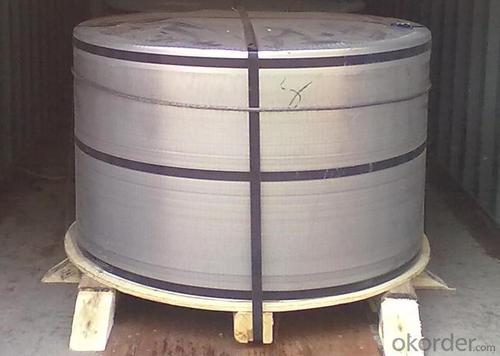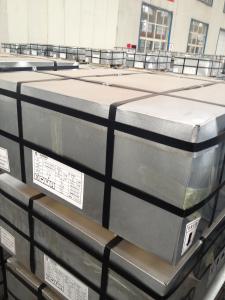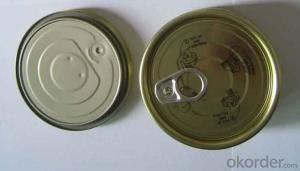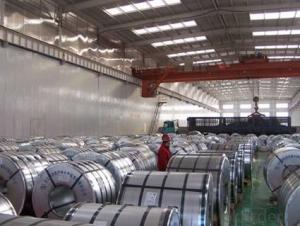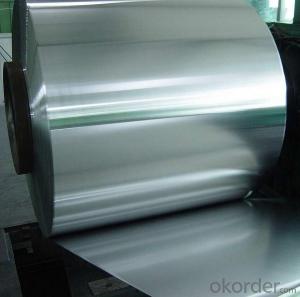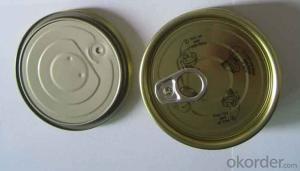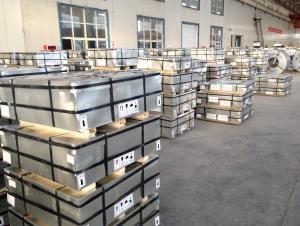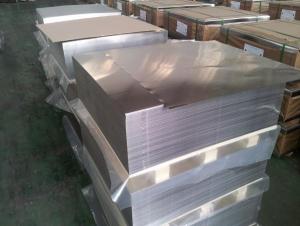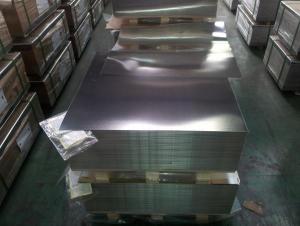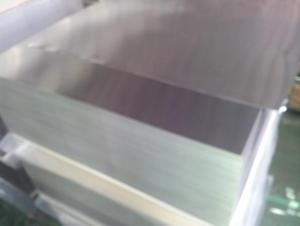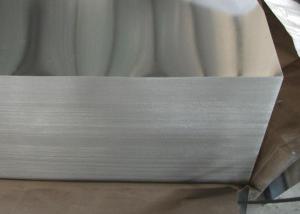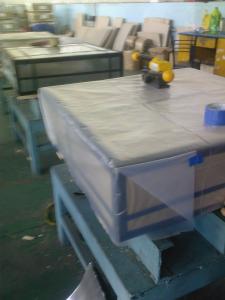Hot Sale Thailand Use Tinplate For EOE-CHBA
- Loading Port:
- Tianjin
- Payment Terms:
- TT/LC
- Min Order Qty:
- 20 Tons~ 25 Tons m.t.
- Supply Capability:
- 40000 MT Per Month m.t./month
OKorder Service Pledge
OKorder Financial Service
You Might Also Like
General information of Tinplate For EOE
Steel Type | MR |
Temper (BA&CA) | T1~T5, DR8 |
Coating | 2.8~8.4g/m2 |
Thickness & Tolerance | 0.15~0.5mm (Tolerance:±0.01mm) |
Width & Tolerance | 600~1000 mm(Tolerance: +2/-0mm) |
I.D | 508 MM |
Coil Weight | 3~10 MT |
Passivation | 311 |
Oiling | DOS |
Surface Finish | Bright ,Stone ,Silver ,Matte |
Min Order | 25 Tons for 1 20 feet FCL |
Package | Seaworthy Export Standard Wooden Pallet |
Standard Available | GB/T2520-2000, JIS G3303, ASTM A623, BS EN10202 |
Lead Time | 35 days after receiving buyer's original L/C or Prepayment |
Special specifications are available on customers' requirements. | |
Technical data of Tinplate For EOE
Chemical Composition(%) | Mechanical Property |
C:0.02~0.04 | Yield Strength: (Mpa):280~320 |
Si:0.01~0.03 | TensileStrength: (Mpa):340~390 |
Mn:0.18~0.22 | Elongation:20%~30% |
P:0.014~0.016 | ------------- |
S:0.006~0.009 |
Tinplate is widely used for making all types of containers such as artistic cans, tea cans, painting cans,
chemical package cans and metal printing etc. Its applications are not limited to containers; recently,
tinplate has also been used for making electrical machinery parts and many other products.
Equipment and Facility
Tin Coating Line
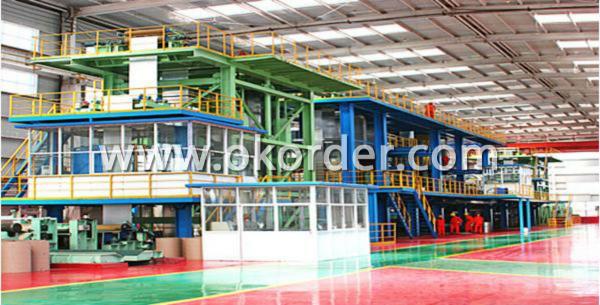
Cold Rolling Mill Batch Annealing Furnaces
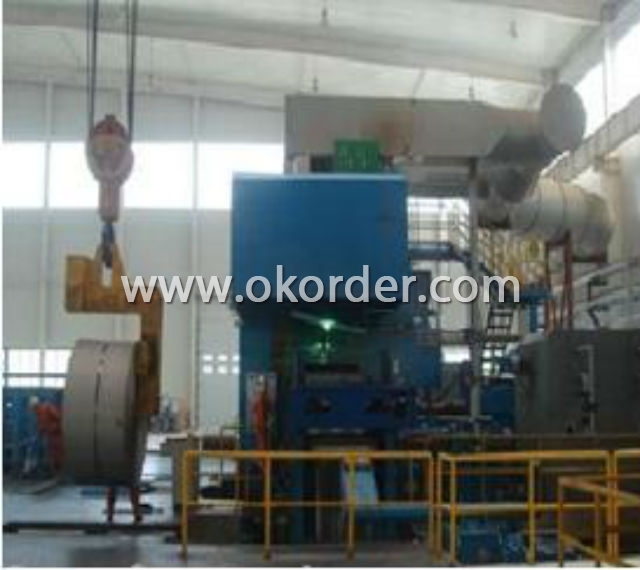
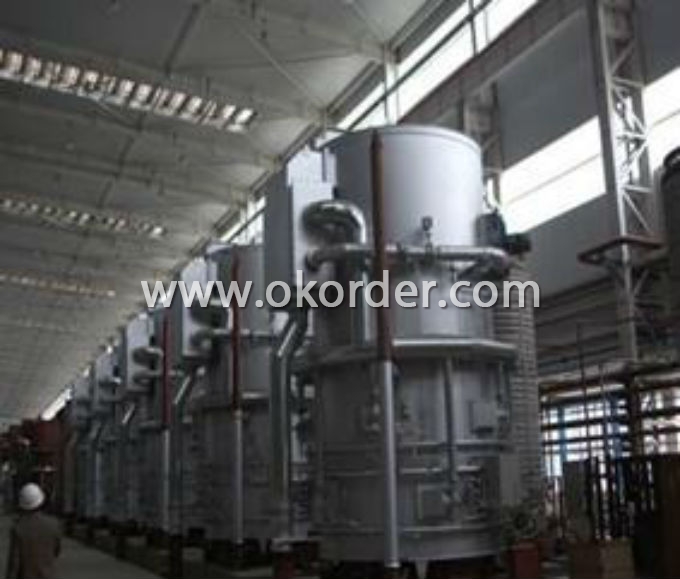
Cutting Line Stock Area
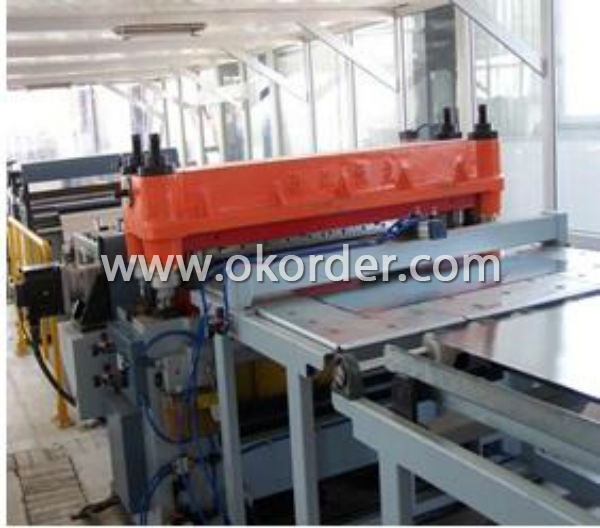
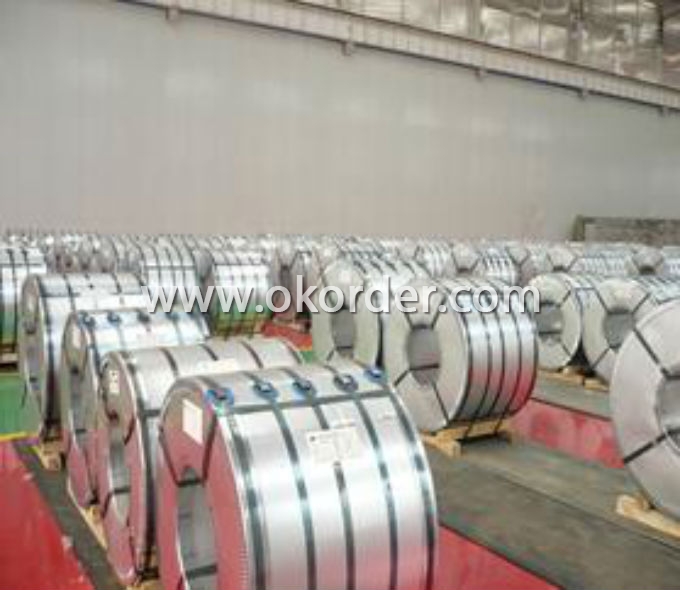
Quality Control System
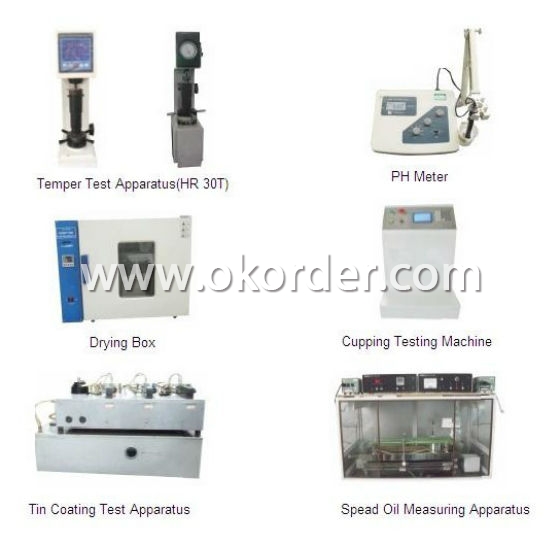
- Q: What are the typical dimensions of tinplate sheets?
- The typical dimensions of tinplate sheets can vary, but they are commonly available in sizes ranging from 0.15mm to 0.35mm in thickness, with widths of 600mm to 1200mm, and lengths ranging from 800mm to 2400mm.
- Q: How does tinplate compare to stainless steel in terms of properties and applications?
- Tinplate and stainless steel differ significantly in terms of properties and applications. Tinplate, made by coating thin steel sheets with a layer of tin, offers good corrosion resistance and malleability, making it suitable for applications like food and beverage packaging, cans, and aerosol containers. On the other hand, stainless steel, an alloy of steel with chromium and other elements, provides superior corrosion resistance, strength, and heat resistance. It finds extensive use in industries like construction, automotive, kitchenware, and medical equipment. While tinplate is more cost-effective and suitable for lightweight applications, stainless steel offers higher durability and versatility for various demanding applications.
- Q: What are the advantages of using tinplate for pharmaceutical packaging?
- There are several advantages of using tinplate for pharmaceutical packaging. Firstly, tinplate is highly resistant to corrosion, ensuring the integrity and safety of the pharmaceutical products. Secondly, tinplate provides excellent barrier properties, protecting the contents from moisture, light, and oxygen, which can degrade the quality and efficacy of medications. Additionally, tinplate is sturdy and durable, providing adequate protection during transportation and storage. Finally, tinplate is easily recyclable, making it an environmentally friendly choice for pharmaceutical packaging.
- Q: Can tinplate be used for packaging liquid products?
- Yes, tinplate can be used for packaging liquid products. Tinplate is highly resistant to corrosion and can effectively protect the contents from external elements. It is commonly used for packaging liquid products such as beverages, oils, and chemicals due to its durability and ability to maintain product integrity.
- Q: Can tinplate be used for renewable energy applications?
- Yes, tinplate can be used for renewable energy applications. It is commonly used for manufacturing solar panels and wind turbines due to its high durability, corrosion resistance, and electrical conductivity properties. Tinplate is also recyclable, making it an environmentally friendly choice for renewable energy projects.
- Q: What is the difference between Maguchi Tetsu tinplate and galvanized board
- Zinc plating on the surface of thin steel plates and steel strips by continuous hot dip plating prevents corrosion of the surface of thin steel plates and steel strips. Galvanized steel sheet and steel strip are widely used in machinery, light industry, construction, transportation, chemical industry, post and telecommunications and other industries.
- Q: Can tinplate be used for high-speed packaging lines?
- Yes, tinplate can be used for high-speed packaging lines. Tinplate is known for its strength, durability, and ability to withstand high-speed production processes. It is commonly used in the packaging industry for various applications, including food and beverage cans, aerosol containers, and metal closures. Its smooth surface allows for efficient movement on conveyor belts, and its resistance to corrosion ensures product safety and longevity. Overall, tinplate is an excellent choice for high-speed packaging lines due to its reliability and compatibility with automated production systems.
- Q: Can tinplate be used for beverage cans?
- Yes, tinplate can be used for beverage cans. Tinplate, which is a thin sheet of steel coated with a layer of tin, provides excellent protection against corrosion and is commonly used in the production of beverage cans.
- Q: How does tinplate perform in terms of recyclability?
- Tinplate has excellent recyclability as it is a highly recyclable material. It can be easily collected, sorted, and recycled into new products repeatedly without losing its quality. This makes tinplate a sustainable packaging choice that contributes to reducing waste and preserving valuable resources.
- Q: How does tinplate compare to aluminum in terms of properties and applications?
- Tinplate and aluminum have distinct properties and applications. Tinplate is steel coated with a thin layer of tin, making it corrosion-resistant, ductile, and easily solderable. It is commonly used for food and beverage packaging, as well as in construction and automotive industries. On the other hand, aluminum is lightweight, non-corrosive, and possesses high thermal and electrical conductivity. It finds extensive use in aerospace, electrical, and packaging industries due to its strength and recyclability. While tinplate offers better barrier properties, aluminum excels in weight reduction and energy efficiency. Hence, the choice between the two depends on specific needs and requirements.
1. Manufacturer Overview
| Location | Hebei,China |
| Year Established | 2009 |
| Annual Output Value | Above US$100 Million |
| Main Markets | North America;South America; Eastern Europe Southeast Asia; Africa; Mid East Eastern Asia; Western Europe; Central America Northern Europe; Southern Europe; Domestic Market |
| Company Certifications | HACCP;ISO 9001:2008;ISO 14001:2004 |
2. Manufacturer Certificates
| a) Certification Name | |
| Range | |
| Reference | |
| Validity Period |
3. Manufacturer Capability
| a) Trade Capacity | |
| Nearest Port | Tianjin |
| Export Percentage | 11% - 20% |
| No.of Employees in Trade Department | 6-10 People |
| Language Spoken: | English;Chinese |
| b) Factory Information | |
| Factory Size: | Above 270,000 square meters |
| No. of Production Lines | Above 12 |
| Contract Manufacturing | OEM Service Offered |
| Product Price Range | High;Average |
Send your message to us
Hot Sale Thailand Use Tinplate For EOE-CHBA
- Loading Port:
- Tianjin
- Payment Terms:
- TT/LC
- Min Order Qty:
- 20 Tons~ 25 Tons m.t.
- Supply Capability:
- 40000 MT Per Month m.t./month
OKorder Service Pledge
OKorder Financial Service
Similar products
Hot products
Hot Searches
Related keywords
